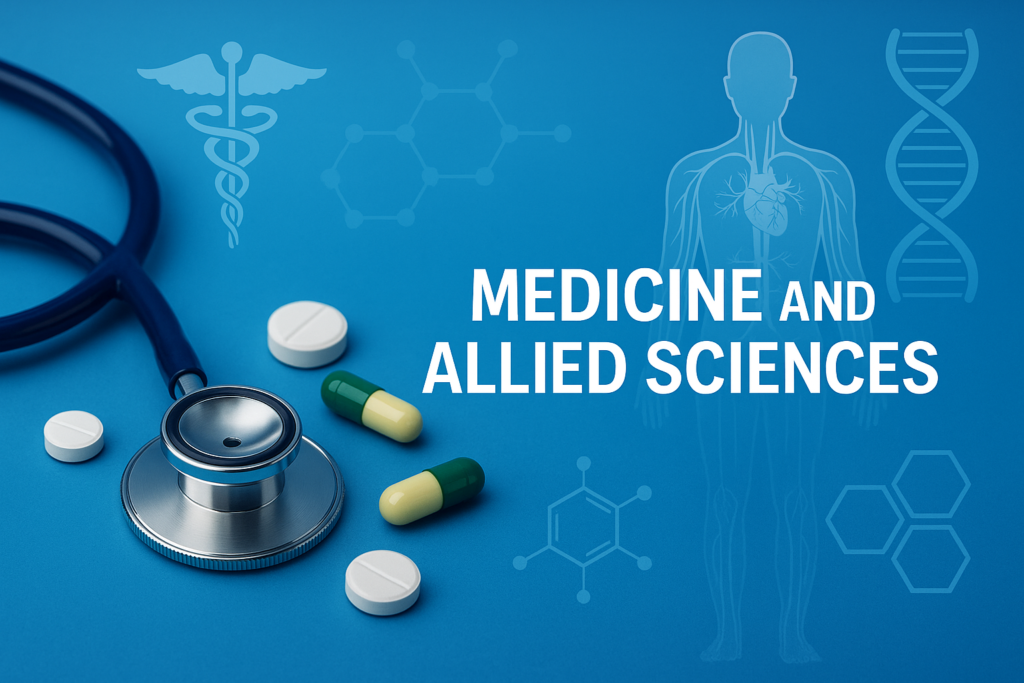Medicine and allied sciences play a crucial role in the field of healthcare today. But what exactly are medicine and allied sciences? They encompass a range of disciplines that are vital to the medical system, including pharmacy, nursing, physiotherapy, laboratory technology, radiology, nutrition, and occupational therapy, among others. Healthcare is not solely about doctors; it involves a collaborative effort from various professionals to ensure a patient’s well-being. The contributions of allied health professionals are indispensable in the journey toward recovery.
Hello everyone ! Welcome to SasVibe.
For instance, physiotherapists assist patients in regaining their mobility, while nurses provide comprehensive care under the guidance of physicians to help patients recover. Laboratory technicians analyze blood and other samples, aiding in diagnosis. Radiologists use imaging techniques like X-rays, MRIs, and CT scans to present accurate depictions of illnesses. Additionally, dietitians create tailored nutrition plans that guide patients on their path to health. Thus, the recovery of a patient is a collective effort, with every professional playing a significant role.
The importance of allied health professionals became particularly evident during the COVID-19 pandemic. A substantial portion of frontline workers consisted of allied health professionals who played a pivotal role in patient care and rehabilitation.
Therefore, medicine is not just centered around physicians. The collaboration between medicine and allied sciences is what truly enriches the healthcare system. The development and training in these fields are critical for establishing an efficient and sustainable healthcare framework.
Where Can You Study Medicine and Allied Sciences in Bengal?
In West Bengal, various courses related to medicine and allied sciences, such as physiotherapy, nursing, laboratory technology, radiology, dietetics, and occupational therapy, are offered at numerous government and private institutions. Here are some notable institutions:
- IPGMER and SSKM Hospital (Kolkata): Offers training in physiotherapy, radiology, laboratory technology, and more.
- NRS Medical College (Kolkata): Provides courses in nursing, pathology, and laboratory technology.
- RG Kar Medical College (Kolkata): Hosts a variety of courses in allied health sciences.
- College of Nursing, Medical College Kolkata: Offers various nursing courses, including B.Sc. in Nursing.
- West Bengal University of Health Sciences (WBUHS): Oversees all health education courses and institutions within the state.
Additionally, several private institutions also offer significant courses in these areas. Prospective students can verify the accreditation, admission processes, and opportunities available by visiting the respective institution’s website or the official portal of WBUHS.
Conclusion
In summary, medicine and allied sciences are integral to a holistic approach to healthcare. The synergy between these fields not only enhances patient care but also strengthens the entire healthcare system. Continuous development and training in these disciplines are essential for achieving a robust and effective healthcare environment. As we move forward, recognizing and supporting the contributions of allied health professionals will be vital in shaping a healthier future for all.



